Lynn Anderson Biography
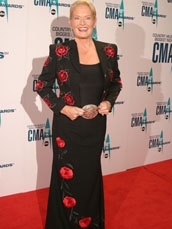
Lynn Anderson
- Real name: Lynn Rene Anderson
Lynn Anderson Biography
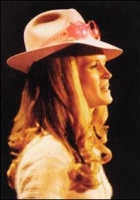
Lynn Rene Anderson (born September 26, 1947) is an American country music singer. She was a consistent hit maker and one of country music's leading ladies throughout the 1970s. Her signature tune, "(I Never Promised You A) Rose Garden", topped the country and pop charts around the world in 1970, becoming one of the biggest selling records in country music history. Her sophisticated image and Countrypolitan sound helped her to become one of the first female country artists to achieve mass crossover appeal. Billboard currently ranks Lynn Anderson among the top ten most successful female country artists for all-time record sales. In 1971, she won a Grammy Award for Best Female Country Vocal Performance. She continued to have major success on the country charts and national television, regularly appearing alongside such legendary stars as Dean Martin and Bob Hope. She served as an ambassador for country music, broadening its appeal and taking it to new levels. In 1974, Anderson became the first female country performer to win an American Music Award for Favorite Female Vocalist. In addition to a Grammy and an American Music Award, her list of major awards includes an Academy of Country Music Award for "Top Female Vocalist" (twice) and a CMA Award for "Female Vocalist of the Year". In a career that spans over four decades, Lynn Anderson has racked up eight No. 1 records, 18 Top 10s, over 50 Top 40 hits, and 17 Gold albums. During the 1970s, when Hollywood needed a country act for variety shows, benefits, talk shows and even television dramas, Anderson was usually the choice. She was the first female country star to do the Tonight Show circuit, as well as the first to headline and sell out Madison Square Garden in 1974. Other well-known hits by Lynn Anderson include "Rocky Top", "Top of the World" (a No. 1 record for her before the Carpenters), "You're My Man", "How Can I Unlove You", "Keep Me in Mind" and "Cry". Her song, "Rocky Top", is now one of two official state songs for Tennessee. Today, she continues to be a popular concert attraction to country and pop music fans around the world, headlining major casinos, performing arts centers, fairs and festivals.
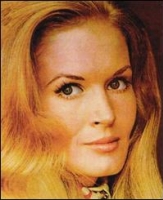
Anderson's first foray into the music world was when, as a teenager, she entered a singing contest sponsored by the Country Corners program in Sacramento. At an early age, Anderson took an interest in singing. Her family took serious interest in horse shows, and Anderson began competing professionally in the mid-60s, while still a teenager. In 1966, she won the California Horse Show Queen title. Anderson then started working as a secretary for KROY Radio in Sacramento, California. While her mother was rising to fame as a country singer and writer, Anderson took the ride to Nashville with her mother and participated in an informal hotel room sing-a-long with country singers, Freddie Hart and Merle Haggard, among others. Slim Williamson, who was the owner of a small Nashville record label, Chart Records, was present at the informal jam session. He invited Anderson to record for the label in 1966, where she would remain until 1969. Unlike some of her contemporaries who, in search of fame, packed up everything they owned and headed to Nashville knocking on doors, Anderson simply seemed to be in the right place at the right time. Anderson joined the cast of The Lawrence Welk Show during the 1967-1968 season, becoming the first country act to regularly perform on the show. She was the show's resident country singer and toured with the "Welk Road Show". Anderson's exposure on national television helped her attract a wider audience early on, which would later serve her well. It was also during this time that Anderson would win her first major industry award, the Academy of Country Music's "Top Female Vocalist". At the time, Anderson was the only female country singer receiving regular exposure on national television. In 1968, as her recording career was becoming top priority, she gave up her regular spot on the show in favor of sporadic guest appearances.
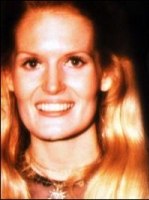
Lynn Anderson's success did not end with the song that made her a househould name and brought her international acclaim. "You're My Man" was a No. 1 hit for Anderson in 1971 and proved to be a successful follow-up to her monster hit, "Rose Garden". It also reached the Top 60 on the pop charts and even hit the Adult Contemporary Top 10, peaking at No. 6, giving Anderson another mainstream hit. She would follow "You're My Man" with another No. 1, "How Can I Unlove You". In addition, Anderson had other Top 10 country hits in 1972, including a remake of "Cry", which hit No. 3 on the Billboard Country charts ("Cry" also hit No. 1 on the Cashbox Country charts). Other hits that made the Top 5 in 1972 include "Fool Me" and "Listen to a Country Song". In 1973, Lynn Anderson released "Top of the World". Anderson's version of the song placed atop the Cashbox (No. 1) and Billboard (No. 2) charts. Although Richard Carpenter wrote the song, it was not until Anderson's version became a country hit that the Carpenters released their version as a pop single. As "Top of the World" became a big hit for Anderson on the country charts, it crossed over and started climbing the pop charts. It has often been speculated "Top of the World" would have been as big a pop hit for Anderson as "Rose Garden", had the Carpenters' version not replaced hers on the pop charts. Even with the Carpenter's pop chart success, the song is still largely identified with Anderson being her version was the first hit. Her other hits that year included "Sing About Love" and another No. 1, "Keep Me In Mind". By now most of Anderson's releases were Pop tinged. In 1975, Anderson enjoyed two Top 15 hits with "He Turns It Into Love Again" and "I've Never Loved Anyone More". Although her chart success was beginning to fade, she remained a constant on national television. In 1977, she was a main character on an episode of "Starsky & Hutch", promoting the song "Wrap Your Love All Around Your Man". The song reached the country Top 15, peaking at No. 12 on the Billboard Country charts. Anderson achieved another Top 20 hit in 1977, "He Ain't You". After a one-year hiatus, Anderson returned to the charts in 1979 with the Karla Bonoff penned hit "Isn't It Always Love", putting her back in the Top 10. The single was from the Outlaw Is Just a State of Mind, which also spawned the Top 20 hit, "I Love How You Love Me".
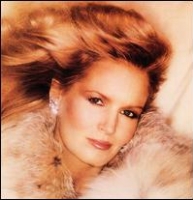
Anderson left Columbia Records in 1980. Her last single with Columbia was the Top 40 hit "Blue Baby Blue", from the Even Cowgirls Get the Blues album. The album cover showed Anderson in sexy cowgirl attire. After the success of the Even Cowgirls Get the Blues, she went into brief retirement to start a new family with her second husband, oil tycoon Harold "Spook" Stream. She had two children with Stream (Anderson and first husband Glenn Sutton had one child and divorced in 1977). Anderson would make a comeback on the small Permian Records label with the album "Back". Her comeback single, "You're Welcome to Tonight", a duet with Gary Morris, put Anderson back in the Top 10, peaking at No. 9. Another single from the same album, "What I've Learned from Loving You", reached No. 18 on the Hot Country Songs chart in 1983, and brought Anderson back as a solo artist. After leaving Permian, Anderson would sign with MCA and Mercury Records, recording singles on and off again throughout the '80s. She released a cover version of the song "Under the Boardwalk" in 1988, which reached No. 24 on the Billboard Country list. Anderson's last charting record was in 1989 with "How Many Hearts."

